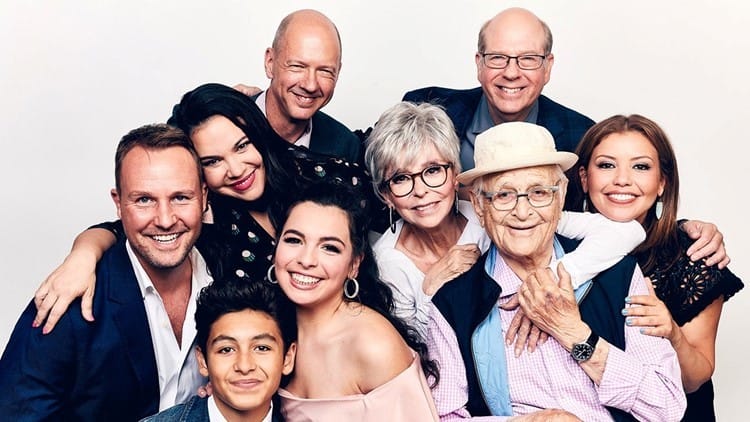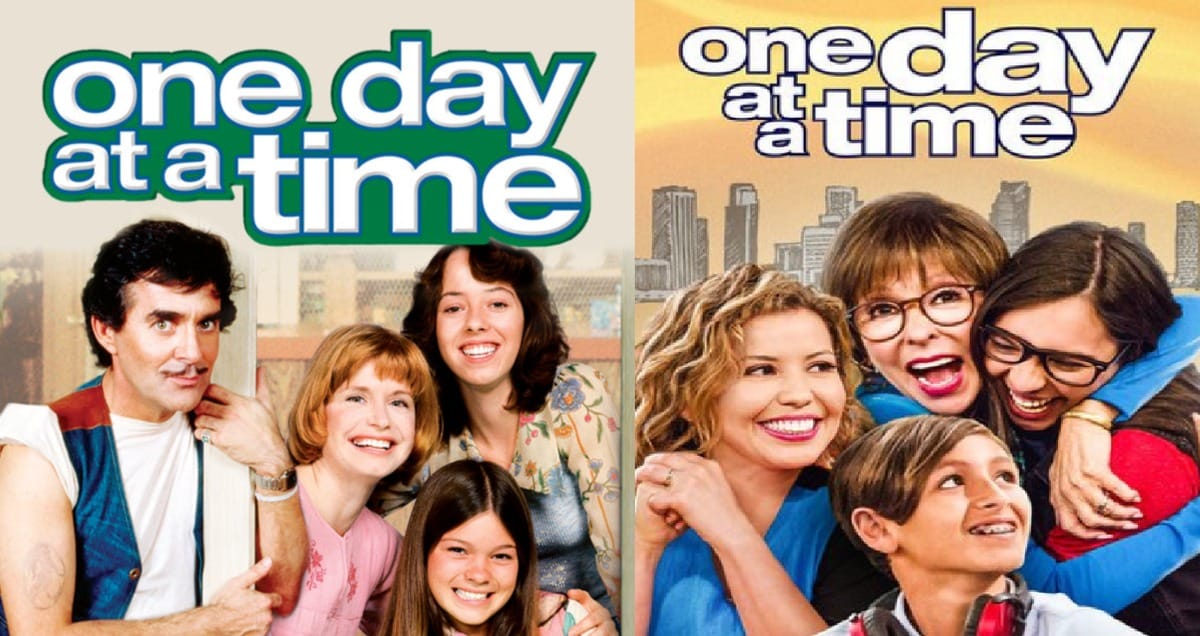
Netflix Cancelled ‘One Day At A Time,’ But Season 4 Will Premiere On Pop TV In March
Fans of the Netflix series One Day at a Time were likely disappointed to learn that the streaming service cancelled the show after its third season. But if you count yourself as an enthusiast, you’re probably doing a little happy dance at the news that the show will appear on basic cable TV this spring—the first time a cable network has revived a cancelled streaming series and kept it from disappearing into the ether. Pop TV announced that Season 4 of One Day at a Time will launch on Tuesday, March 24 at 9:30/8:30 CT, and the network released the following sneak peek at what’s to come:
“This season will find Penelope exploring a surprising relationship, her mother Lydia experiencing a religious crisis (as well as revealing the details of her surprise trip to Cuba with Dr. Berkowitz), and Schneider finding his relationship with Avery growing deeper. Meanwhile, Elena begins to prepare for college and Alex starts to date.”
Lots to look forward to! But as we prepare for the next iteration of the show, why don’t we take a quick look at its history? How did One Day at a Time begin, and how did it evolve into a beloved reflection of contemporary Latinx family life?

One Day at a Time first aired back in 1975, centering on a white family—a single mom and two kids, just like the current version—who lived in Indianapolis, rather than LA. It was based on the experience of Whitney Blake, one of the show’s creators, as a single mom (which, at the time, was pretty revolutionary—single parenthood was not nearly as common as it is today!). The original show explored the family’s life in the midst of divorce, something that was still pretty taboo in that era, and although it was a sitcom steeped in laughs and levity, it also highlighted the difficulties of navigating the world as a single mother.
Fast forward to 2017. One Day at a Time reemerges on Netflix, and while the same basic storyline is still there, the aura of the show is totally different (and a lot more complex). Instead of focusing on a white family, the new One Day at a Time follows the story of Penelope Alvarez, a US Army Nurse Corps veteran who struggles with her return to civilian life. Alvarez separates from her husband, who had also served in the army, due to erratic behavior caused by alcoholism and PTSD—but Alvarez herself also suffers from PTSD, a conflict that adds an important dimension to the show by offering a glimpse into a mental health reality that affects large swaths of people yet is often overlooked. So, Penelope Alvarez must not simply face the challenges of single motherhood: she must also battle with the lingering trauma of combat, all while trying to manage the stresses of quotidian life in a Cuban-American family.
One Day at a Time has been lauded for its authentic portrayal of relevant social questions that are of particular importance to the Latinx community—from immigration to LGBTQ issues, One Day at a Time gracefully addresses a wide spectrum of topical concerns.

Credit: Netflix
It’s true: One Day at a Time features characters facing the intense process of applying for citizenship. It shares the story of a character who doesn’t want to celebrate her quinceañera, who ruminates about the right time to tell her family she’s queer. It challenges gender expectations by introducing its audience to non-binary characters. In certain ways, it mirrors the original series in its willingness to address sensitive yet important issues that resemble the lives of people all over the US. Perhaps that’s part of why it’s been so well-received, and why Pop TV is willing to give it another chance.
Regarding the show’s resurrection on regular network TV, Brad Schwartz, President of Pop TV, said the following in a statement: “The enthusiastic response from fans since announcing our new season of One Day at a Time has been thrilling. “The series is more important than ever with its unmatched ability to tackle topical social issues through the lens of a relatable, loving family. The exceptionally talented team behind and in front of the camera make us proud to have One Day at a Time at home at Pop TV.”
The cast is totally lovable, super talented, and deeply engaging—so much of the praise for this show surrounds the fabulous actors at the helm. It’s been called “timely and tender,” “flat-out terrific,” “old fashioned and surprisingly new-fashioned,” and if you haven’t yet tuned in to this critically acclaimed series, make sure you catch up on Seasons 1-3 before the new season premieres in March!




